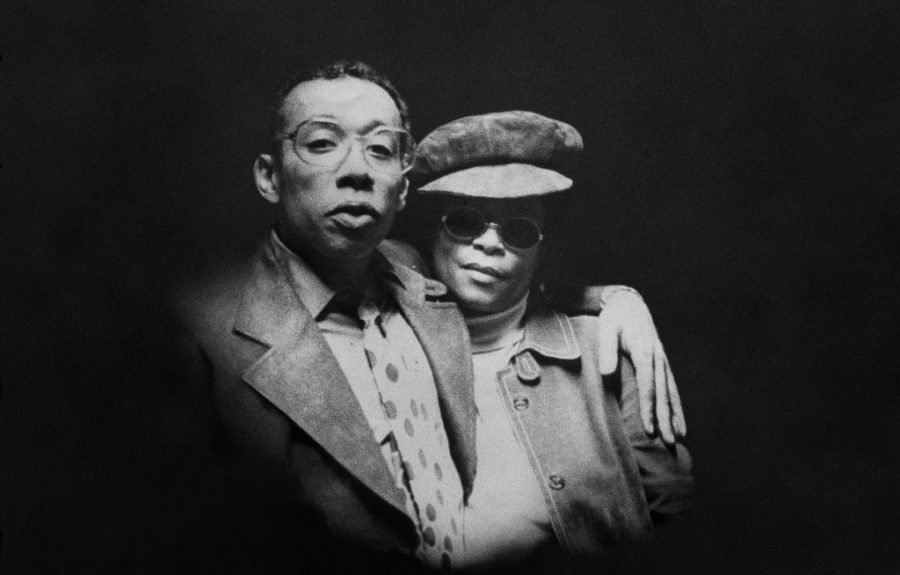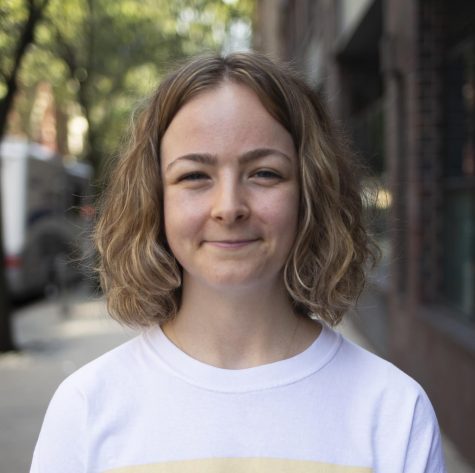Jazz Meets Murder in Documentary
Courtesy of Susan Norget Film Promotion
Lee Morgan, the legendary New York jazz trumpeter, poses with his wife and murderer, Helen More. The new documentary by Kasper Collin, “I Called Him Morgan,” retells the life of the musician.
March 20, 2017
A jazz musician and a gunshot — in 1972, the entire jazz scene stood still. No tunes played during the colossal New York blizzard that night when Lee Morgan was murdered at the hands of his wife Helen Morgan. Now, more than 40 years later, the murder remains surreal and unimaginable in the minds of those who witnessed it.
Morgan was labeled a prodigy when he first emerged in the 1950s New York City jazz scene, and as a teenager he was already challenging the likes of famed trumpeter Dizzy Gillespie. Morgan soon emerged at the forefront of the jazz world as one of its most talented trumpeters, known for playing with intense feeling. Kasper Collin’s new documentary “I Called Him Morgan” captures Morgan’s musical essence, the turbulence of his short, 33-year life and his soul that had much more left to contribute before his abrupt end when his wife shot him during a performance at the East Village jazz spot Slug Saloon.
The film features very few direct interviews with Morgan himself, yet this only makes his tale more compelling — the audience sees everything unfold through the eyes of his band members and friends. The film chronicles Morgan’s beginnings as a teenager in Philadelphia in the 1940s to his success as a jazz musician and his corresponding descent into heroin addiction. The filmmakers made a wise choice of ensuring that his untimely death was not the defining moment of Morgan’s memory — his music remained as his legacy. Through the words of the men who played with him, it’s unmistakable that Morgan’s influence on the history of jazz is tremendous, recording dozens of albums although he lived to be only 33 years old. Had he survived, there is no telling what else he could have produced.
The backbone of the documentary is rooted in an interview recording of his wife Helen, which was documented just months before her death in 1996. The recording was done by Helen’s night-school teacher, Larry Reni Thomas, and it feels shocking at first that the woman speaking is the same person who shot and killed her husband. It’s eerie and unsettling to listen to Helen’s story and to hear her recount her relationship with Morgan.
Collin, who served as both the director and screenwriter, searches for the core meaning of Morgan’s life. In many ways, his story is one of comeback — after booming to fame, he tumbled back down and was rescued from the gutter of drugs by his wife. And that was the irony — the woman who saved him was also the woman who killed him.
Jazz is an exciting art form that has persisted over generations. The style itself is swinging and improvised, replete with musical freedom, and “I Called Him Morgan” embodies theose same qualities. Morgan’s narrative is chaotic and comes to a close in an equally messy manner. Helen’s extensive interview helps the documentary gain traction and creates friction — in what could have been a simple film about the rise and fall of a jazz musician, “I Called Him Morgan” transcends to a chilling account of the tumultuous nature of relationships.
“I Called Him Morgan” opens at the Film Society of Lincoln Center at 70 Lincoln Center Plaza on Friday, March 24.
A version of this article appeared in the Monday, March 20 print edition.
Email Daniella Nichinson at [email protected].




























































































































































